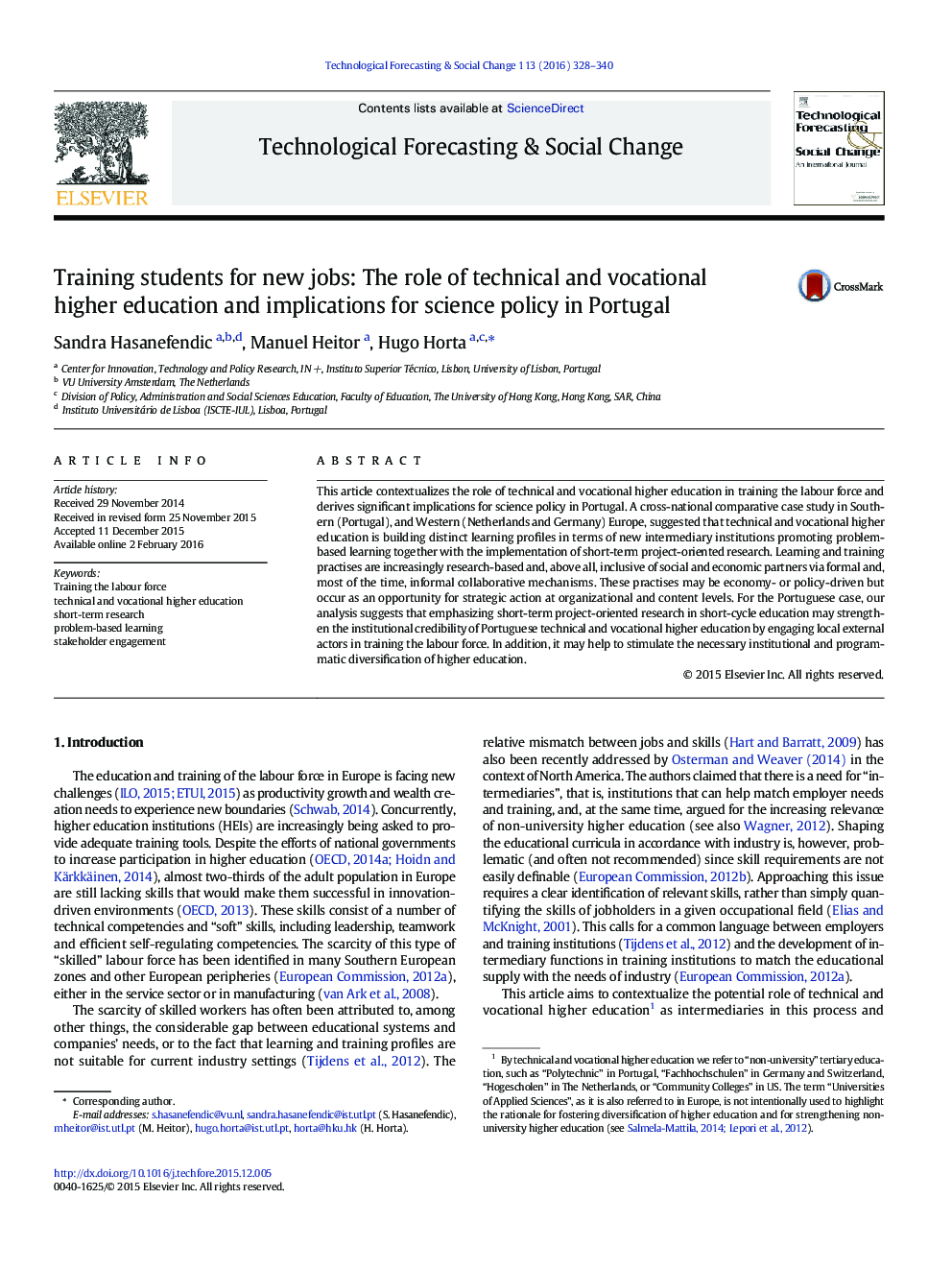| کد مقاله | کد نشریه | سال انتشار | مقاله انگلیسی | نسخه تمام متن |
|---|---|---|---|---|
| 5036972 | 1370204 | 2016 | 13 صفحه PDF | دانلود رایگان |
- Technical and vocational higher education are redefining teaching and research practises towards more participatory labour market training.
- Short-term problem-based, project-oriented research learning is central to modern training in technical and vocational higher education in the Netherlands and Germany.
- Short-cycle courses are offering a new access route to higher education, particularly through technical and vocational higher education, decreasing dropout rates.
- New opportunities for training the labour force in Portugal may involve short-cycle education with industry and community collaboration.
This article contextualizes the role of technical and vocational higher education in training the labour force and derives significant implications for science policy in Portugal. A cross-national comparative case study in Southern (Portugal), and Western (Netherlands and Germany) Europe, suggested that technical and vocational higher education is building distinct learning profiles in terms of new intermediary institutions promoting problem-based learning together with the implementation of short-term project-oriented research. Learning and training practises are increasingly research-based and, above all, inclusive of social and economic partners via formal and, most of the time, informal collaborative mechanisms. These practises may be economy- or policy-driven but occur as an opportunity for strategic action at organizational and content levels. For the Portuguese case, our analysis suggests that emphasizing short-term project-oriented research in short-cycle education may strengthen the institutional credibility of Portuguese technical and vocational higher education by engaging local external actors in training the labour force. In addition, it may help to stimulate the necessary institutional and programmatic diversification of higher education.
Journal: Technological Forecasting and Social Change - Volume 113, Part B, December 2016, Pages 328-340
